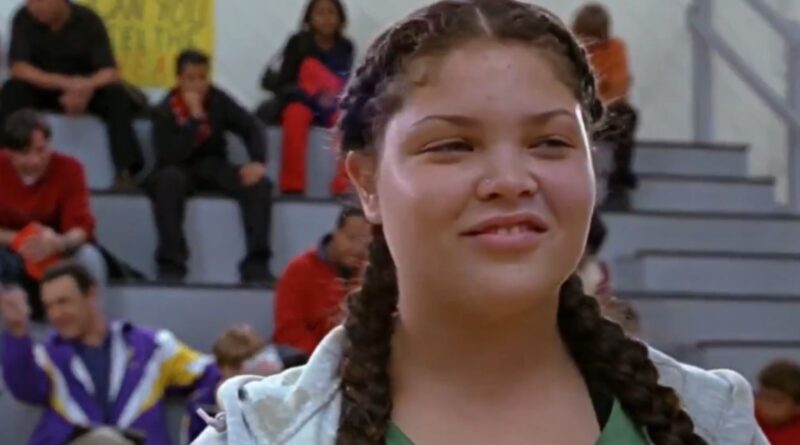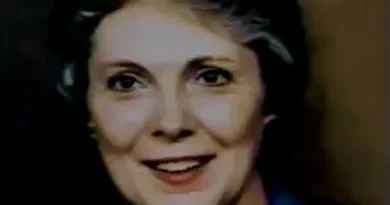The Shooting Death of Child Star Tara Correa-McMullen in Los Angeles California
Tara Correa-McMullen, born Shalvah McMullen on May 24, 1989, in Westminster, Vermont, was a young woman whose life was filled with potential. She was raised in Los Angeles, California, after her family relocated during her early childhood. From a young age, Tara showed a natural flair for performance and expression. Her energy, charm, and confidence led her to acting opportunities that would quickly make her a familiar face in American households.
By the time she reached her teenage years, Tara’s career had already begun to take shape. She made her professional debut in the 2005 basketball-themed movie Rebound, starring comedian Martin Lawrence. Her performance caught the attention of producers and casting directors, paving the way for what seemed to be a promising acting future. However, her most memorable role came when she was cast as Graciela Reyes, a recurring character on the popular CBS drama Judging Amy. Playing a young girl caught up in the juvenile justice system, Tara displayed depth and maturity beyond her years.
Behind the scenes, however, Tara’s life was not as glamorous as the roles she portrayed. While she was working on Judging Amy, she also experienced the struggles of growing up in a challenging environment. Living in Inglewood, a community within Los Angeles County, Tara was exposed to the realities of inner-city life, including gang culture and social pressures that often affect youth in urban neighborhoods.
The Events of October 21, 2005
On October 21, 2005, tragedy struck. Tara Correa-McMullen was just sixteen years old when she was fatally shot outside an apartment complex in Inglewood, California. That evening, she had been standing with a group of friends when a gunman approached and opened fire. Tara was struck multiple times and collapsed at the scene, while two men with her were also wounded. Emergency responders rushed to the scene, but she was pronounced dead shortly afterward.
The shooting sent shockwaves through the entertainment industry and the local community. It was not just the loss of a talented young actress that drew national attention, but the stark reminder of how gang-related violence could claim innocent lives. The police investigation soon revealed that the attack was linked to gang activity in the area, although Tara herself was not believed to have been the intended target.
The Investigation and Arrest
In the days following the shooting, the Los Angeles County Sheriff’s Department and Inglewood Police launched a full investigation. Witness statements and forensic evidence led detectives to identify a suspect named Damien Watts, a known gang member associated with a violent series of shootings that had taken place over a two-day period.
Authorities determined that Watts had participated in multiple shootings, including the murder of another victim, Thomas Sanders, earlier that same month. Watts’ involvement in the killing of Tara Correa-McMullen was confirmed through ballistic evidence and eyewitness testimony. He was arrested and charged with multiple counts of murder and attempted murder.
During the trial, prosecutors argued that Watts’ actions were part of a gang retaliation effort and that Tara’s death was a tragic result of reckless violence. The defense attempted to challenge the credibility of witnesses, but the evidence presented was overwhelming. In January 2009, a Los Angeles County jury found Damien Watts guilty of the murders of Tara Correa-McMullen and Thomas Sanders, along with six counts of attempted murder.
Sentencing and Justice
In February 2009, Watts was sentenced to two consecutive life terms in prison without the possibility of parole. The court’s decision brought some measure of closure to Tara’s family, friends, and fans, though the pain of her loss lingered deeply. Prosecutors described the case as one of senseless brutality that destroyed multiple lives, including that of a young actress who had just begun to find her place in Hollywood.
During sentencing, members of Tara’s family spoke about her passion for acting and the void her death had left behind. Her mother described Tara as a “bright, beautiful, and talented young girl” whose laughter and spirit could light up any room. While the conviction ensured that Watts would spend the rest of his life behind bars, no sentence could undo the tragedy that had unfolded in Inglewood that night.
A Life Remembered
In the years since her death, Tara Correa-McMullen’s story has continued to resonate. Fans remember her from her role on Judging Amy, where she portrayed a troubled youth seeking redemption — a character that, in many ways, reflected the complexities of the real world she lived in. Her tragic murder became a symbol of the devastating impact of urban violence and the fragility of life in neighborhoods plagued by gang activity.
Television networks and documentary producers have revisited her case, highlighting not only her death but also the social conditions that contributed to it. Her story was featured in several true-crime programs, underscoring the senselessness of her loss and the need for continued efforts to reduce violence among young people.
Tara’s colleagues from the entertainment industry expressed deep sorrow at her passing. Many described her as cheerful, talented, and full of promise. Some noted that she had an intuitive ability to connect with her characters and portray their struggles with authenticity. She was a teenager who had managed to stand out in a highly competitive industry, and her untimely death felt like a loss not only for her loved ones but for the creative world at large.
The Broader Impact of Her Death
Tara’s murder also reignited public conversations about youth violence in Los Angeles. The early 2000s were a turbulent period for parts of the city, where gang rivalries and socioeconomic challenges often intersected. The fact that a young actress from a national television show could fall victim to such violence underscored the depth of the problem.
Community organizations, activists, and educators used her story to advocate for safer youth programs and neighborhood initiatives aimed at breaking cycles of violence. Some local leaders emphasized the importance of mentorship, education, and community outreach to protect at-risk youth from being caught in the crossfire of gang disputes.
In the years that followed, Tara’s name became part of a larger narrative about how talent and promise can be extinguished by the very environments that nurture creativity. Her death remains a sobering reminder that fame and success cannot always shield one from the dangers of the world beyond the spotlight.
Remembering Tara Correa-McMullen

Nearly two decades later, Tara Correa-McMullen’s memory continues to live on through the roles she played and the impact she left on those who knew her. Her story has been revisited in documentaries, online tributes, and fan discussions celebrating her life rather than just mourning her death.
Her brief yet powerful career stands as a testament to her talent, perseverance, and the potential she embodied. Though she never had the chance to fully realize her dreams, her legacy continues to inspire awareness and dialogue about violence, opportunity, and hope among young people.
The murder of Tara Correa-McMullen on October 21, 2005, in Los Angeles, California, remains a tragic chapter in Hollywood history — a painful reminder that behind the glamour of television and film, real lives are lived and sometimes lost too soon.
Discover more from City Towner
Subscribe to get the latest posts sent to your email.




